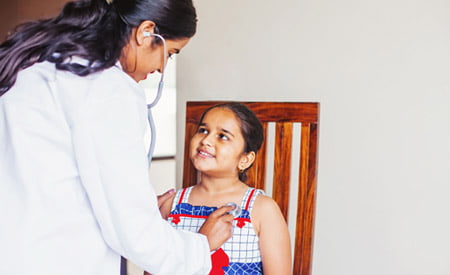Summer brings with it a unique set of health challenges, especially for children. While we often associate colds with the winter season, summer colds are a common reality, alongside various infections that thrive in the warmer months. In this comprehensive guide, we explore effective strategies and preventative measures to help keep your children healthy during the summer.
Understanding Summer Colds and Infections
Summer colds, primarily caused by different viruses than those of winter colds, can be just as uncomfortable for children, with symptoms including a runny nose, sore throat, coughing, and fatigue. Additionally, the warm and humid weather can encourage the proliferation of bacteria and viruses, leading to various other infections.
Symptoms to Watch For
Identifying the symptoms early can lead to a quicker recovery:
- Runny or stuffy nose
- Coughing or sneezing
- Sore throat or hoarseness
- Mild fever
- Fatigue or general feeling of being unwell
These symptoms can also be accompanied by ear infections or skin rashes, which are common during summer due to increased outdoor activities.
Effective Home Remedies
Several home remedies can be effective in managing symptoms and speeding up recovery:
Hydration: Ensuring your child drinks plenty of fluids is crucial. It helps thin mucus and provides relief from a sore throat.
Rest: Encourage your child to rest. The body needs more energy to fight off infections, and rest aids in recovery.
Humidifiers: Using a humidifier in your child’s room can help maintain moisture in the air, which soothes sore throats and eases congestion.
Warm Saline Gargles: For older children, gargling with warm saline water can help relieve a sore throat.
Honey and Lemon: A teaspoon of honey with some lemon can soothe a sore throat and calm a cough. Note: Honey is not recommended for children under one year old.
Preventative Measures
Preventing infections is key to avoiding the discomfort and potential complications they can bring:
Hand Washing: Teach your child the importance of regular hand washing, especially before meals and after playing outside.
Avoid Crowded Places: During outbreaks of colds and other infections, try to minimize your child’s exposure to large groups of people.
Balanced Diet: A diet rich in fruits, vegetables, and whole grains can boost your child’s immune system.
Appropriate Dressing: Ensure your child is dressed appropriately for the weather, avoiding overheating and excessive sweating, which can lead to skin irritations and other discomforts.
When to See a Doctor
While most summer colds and infections can be treated at home, it’s important to know when to seek professional medical advice. Visit a doctor if:
- Symptoms persist for more than a week
- Your child has a high fever (above 100.4°F)
- There are signs of dehydration, such as very dry mouth, no tears when crying, or less frequent urination
- Difficulty breathing or severe coughing
- Ear pain, which could indicate an ear infection
Conclusion
While summer is a time for fun and relaxation, it also poses specific health risks for children. Being aware of how to treat and prevent summer colds and infections can help ensure that your children enjoy a healthy, active summer. Remember, early intervention is key to a quick recovery, and maintaining good hygiene practices can significantly reduce the risk of illness.


